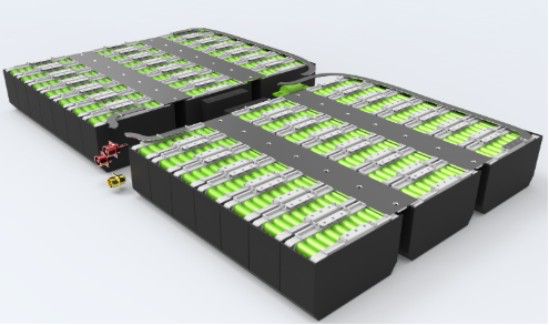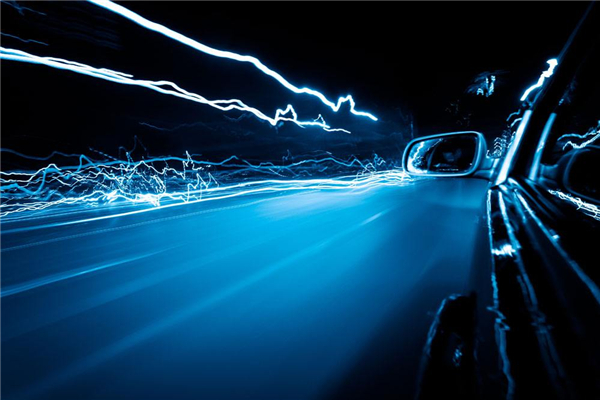Lipo Battery Puffing Cause
Oct 14, 2019 Pageview:1876
When you experience a LiPo battery failure, you would find that everything is quickly going south. You may open your device, be it a phone or whatever it is to, find that your battery is twice as large as its original size. Now, your battery is bloating and you don’t know what to do. Knowing what to do can be very important to you and to those who stay or are around you.
Anyone who uses LiPo batteries will one day find that their LiPo battery is inflated or swollen than it should ordinarily be. When this happens, the first question most people ask is "What should I do?"
This article explains the causes of this swelling and what you must do if any of your LiPos gets bloated.
Why do LiPo batteries get bloated?
There is a generation of gases in LiPo batteries, and it is quite normal. Even if the battery is not misused, gases are still generated during its normal daily use. This is caused by a process called electrolyte breakdown or decomposition.
The degradation of these electrolytes occurs even more rapidly when you overcharge your battery.
What is electrolyte decomposition or degradation?
In short, a battery is made up of three main things: the cathode, the anode as well as the electrolyte. Both the cathode and anode are charged. They are both the positive and negative terminals of the battery.
The electrolyte is one of the chemicals in the battery which allows the charged ions to move from the anode to the cathode when the battery is discharging (and vice versa during charging).
The electrolyte decomposition happens when the electrolyte in the battery decomposes chemically. So when the electrolyte decomposes in a LiPo battery, lithium and oxygen are both released. This is what forms lithium oxide on the anode and in the cathode (depending on if you are charging or discharging the battery).
But there is also an excess of oxygen that does not adhere to the anode or the cathode. This excess of oxygen is one of the causes of the swelling of the LiPo batteries. As you may have known, oxygen likes to burn. So that may be dangerous.
Carbon dioxide (CO2) and carbon monoxide (CO) are other gases that may be present in the battery during normal chemical reactions of the battery.
How do you dispose of a swollen battery?
Once you discover that your LiPo battery is compromised or swelling in any way, stop the charge or use of the device immediately, until you remove the battery from the device or equipment.
To do that, first, turn off the device before removing the battery. Once your battery reaches the point where it starts to bloat or swell, you know that it is a sign that all the safety mechanisms in the battery are dead. Continuous use or charging of the battery is an invitation to an explosion. You know there are dangerous gases in the battery that are flammable. They may just go off if you continue charging them when they’re bad and already showing you such sign. You don’t want that happening in your living room, do you?
So the following are how to dispose of your LiPo batteries when they start to bloat or swell.
The first and simplest method:
Check your yellow pages to learn if there is any local battery disposal service around you. In this case, it is the simplest way to dispose of your battery.
Disposal of your LiPo battery using a homemade disposal
The first thing you must do when you are to dispose of your LiPo battery is to drain or discharge the battery to 0V. This is because the lithium polymer batteries are very safe when they are not carrying any voltage. You must, therefore, ensure that no charges build up in the battery.
· Take a bucket of sand and dip the battery inside it in an upside-down position.
· Drain the battery by connecting an LED or a small lamp to it. This will empty it to 0V. Leave the lamp connected for a day after the LED has stopped shining.
· Disconnect the battery connectors.
· You may now strip the connection wires
· Connect the red and black wires to cause a short circuit, thereby preventing a voltage build-up.
· The LiPo battery has now been properly stabilized and can now be thrown into the regular waste bin.
· By slowly discharging the battery, you produce less heat. This is much safer than a quick discharge of the battery with a motor or a heavily loaded connection.
Some people pull or nail their bloated LiPo batteries. Although this may be exciting and seem a fun way to discharge and dispose of your LiPo battery, it is, however, dangerous practice and may result in an explosion. Whatever the method of discharge or disposal you choose, ensure your safety is of priority, and you do it out outside of your home.
How do you prevent LiPo battery puffing?
1.Charge the battery correctly:
The first step to avoiding your LiPo battery bloating is to use a good charger to charge your device. This ensures a proper charge of the battery. If safety is your concern, then put the battery in a LiPo bag as you charge it. Not having a LiPo bag is not an excuse, because you can get one for as small as $10. This ensures the containment of the battery, should anything go wrong.
2.Avoid overcharging the battery:
Stop using the battery before it reaches the minimum cut-off voltage. This is one of the precautions to avoid bloating.
3.Avoid heat:
Heat is another thing you must avoid because it kills both the battery, and endangers you the user. Do not use the battery when it is warm (or hot). So give it time to cool off before it is charged again. Also, after charging, give it time before you also use it.
4.Store the battery properly:
Proper storage is very important to the use of your battery. Do not store the battery in hot places. For instance, during summer, don’t keep the battery in the trunk of your car. Adhere to the recommended storage voltage as well.
- Prev Article: Lithium-ion Battery Runtime Calculator
- Next Article: Social Impact of Lithium Ion Batteries
Leave Message
Hottest Categories
-
Hottest Industry News
-
Latest Industry News











